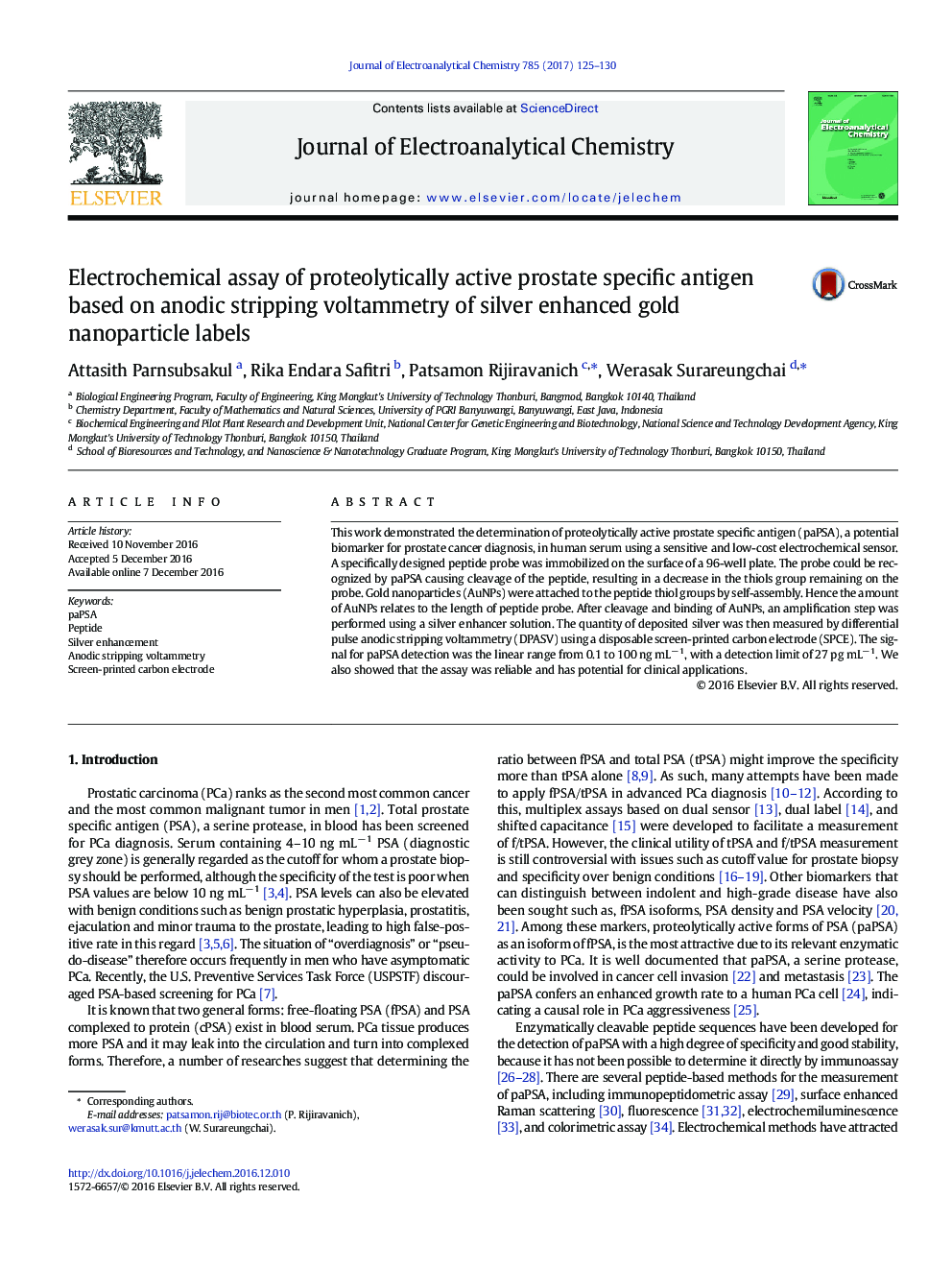| Article ID | Journal | Published Year | Pages | File Type |
|---|---|---|---|---|
| 4908082 | Journal of Electroanalytical Chemistry | 2017 | 6 Pages |
â¢A simple and high specific peptide sensor for proteolytically active prostate specific antigen (paPSA) detection.â¢AuNPs induced Ag deposition and incorporating with ASV detection was used for signal amplification.â¢Peptide was immobilized into 96-well plate for multiple samples detection.â¢The peptide sensing shows a good analytical performance.â¢The platform is promising for clinical applications.
This work demonstrated the determination of proteolytically active prostate specific antigen (paPSA), a potential biomarker for prostate cancer diagnosis, in human serum using a sensitive and low-cost electrochemical sensor. A specifically designed peptide probe was immobilized on the surface of a 96-well plate. The probe could be recognized by paPSA causing cleavage of the peptide, resulting in a decrease in the thiols group remaining on the probe. Gold nanoparticles (AuNPs) were attached to the peptide thiol groups by self-assembly. Hence the amount of AuNPs relates to the length of peptide probe. After cleavage and binding of AuNPs, an amplification step was performed using a silver enhancer solution. The quantity of deposited silver was then measured by differential pulse anodic stripping voltammetry (DPASV) using a disposable screen-printed carbon electrode (SPCE). The signal for paPSA detection was the linear range from 0.1 to 100 ng mLâ 1, with a detection limit of 27 pg mLâ 1. We also showed that the assay was reliable and has potential for clinical applications.
